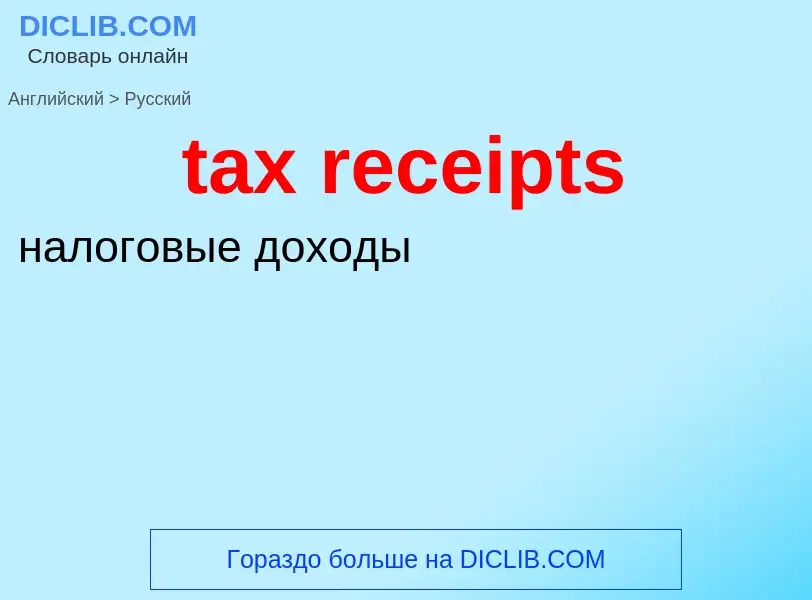Перевод и анализ слов искусственным интеллектом ChatGPT
На этой странице Вы можете получить подробный анализ слова или словосочетания, произведенный с помощью лучшей на сегодняшний день технологии искусственного интеллекта:
- как употребляется слово
- частота употребления
- используется оно чаще в устной или письменной речи
- варианты перевода слова
- примеры употребления (несколько фраз с переводом)
- этимология
tax receipts - перевод на русский
['sintæks]
разговорное выражение
налог «на пороки» (на табак, алкогольные напитки, азартные игры и т. п.)
собирательное выражение
налог на табак, алкогольные напитки, азартные игры и т. п.
подушный налог с иммигрантов
['pəultæks]
общая лексика
подушный налог (взимается со всех взрослых в доме, квартире и т.п.; размер налога данного города или района определяется местными органами власти [local authority]; заменил местный налог [rates] в 1989 в Шотландии, в 1990 в Англии и Уэльсе; в 1993 в свою очередь заменён муниципальным налогом [council tax]; официально называется районным налогом [community charge])
подушный налог
['hedtæks]
общая лексика
подушный налог
['tæksdɔdʒiŋ]
существительное
общая лексика
уклонение от уплаты налогов
Википедия
A gross receipts tax or gross excise tax is a tax on the total gross revenues of a company, regardless of their source. A gross receipts tax is often compared to a sales tax; the difference is that a gross receipts tax is levied upon the seller of goods or services, while a sales tax is nominally levied upon the buyer (although both are usually collected and paid to the government by the seller). This is compared to other taxes listed as separate line items on billings, are not directly included in the listed price of the item, and are not a factor in markup or profit on company sales. A gross receipts tax has a pyramid effect that increases the actual taxable percentage as it passes through the product or service lifecycle.
Another pyramid effect of the tax comes from the fact that such a tax by definition is levied against itself (in the sense that a business subject to a gross receipts tax will raise its prices to compensate, which in turn increases its gross revenue, which increases the tax owed, and so on in circles) and therefore amounts to a tax on tax. Thus, the actual tax rate of a gross receipts tax is always slightly higher than the nominal tax rate. This is easiest to discern in jurisdictions like Hawaii where businesses are allowed to visibly pass on gross excise tax to their customers.





